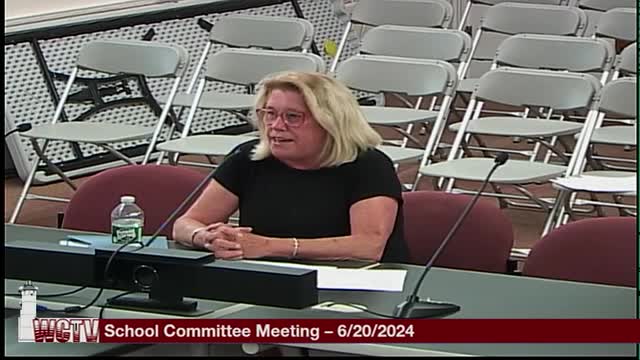Students Return to School Amid Rising Anxiety and New Programs
June 21, 2024 | Wareham Public Schools, School Boards, Massachusetts

This article was created by AI summarizing key points discussed. AI makes mistakes, so for full details and context, please refer to the video of the full meeting. Please report any errors so we can fix them. Report an error »

In a recent government meeting, educators discussed the evolving landscape of student enrollment and support programs in the wake of the COVID-19 pandemic. Notably, the graduation ceremony highlighted a trend of younger students, some as young as 16, enrolling in night school programs, a shift attributed to increased social and emotional challenges faced by students during the pandemic. This year's graduating class was one of the smallest, yet the attendance at the ceremony was notably high, indicating strong community support for the program.
The meeting also addressed the upcoming summer programs, including the Care and Sail Boost and Accelerated Academies, which are set to run from July 1 to August 1. Currently, 166 students are registered for these programs, which aim to provide academic support in a less traditional setting. The Accelerated Academies, introduced post-COVID, focus on core subjects in a hands-on, project-based format, catering to students who may struggle in conventional classrooms.
Concerns were raised about the limited funding for these programs, which restricts the number of students who can be accommodated. Currently, there is a waitlist of 24 students for the Care program, highlighting the demand for additional academic support. The discussion emphasized the importance of addressing the needs of students at risk of falling behind, particularly those with disabilities or economic disadvantages.
The meeting also touched on the extended summer school program for students with Individualized Education Programs (IEPs), which aims to prevent significant regression during long breaks from school. Approximately 170 students are recommended for this program, reflecting a stable need for such services.
Educators expressed concerns about the reliance on standardized testing, such as MCAS, to measure student success, arguing that it may not accurately reflect students' capabilities or learning experiences. The conversation underscored the importance of holistic approaches to education that consider emotional and social development alongside academic achievement.
Overall, the meeting highlighted the ongoing challenges and adaptations in the educational landscape, as schools strive to meet the diverse needs of their students in a post-pandemic world.
The meeting also addressed the upcoming summer programs, including the Care and Sail Boost and Accelerated Academies, which are set to run from July 1 to August 1. Currently, 166 students are registered for these programs, which aim to provide academic support in a less traditional setting. The Accelerated Academies, introduced post-COVID, focus on core subjects in a hands-on, project-based format, catering to students who may struggle in conventional classrooms.
Concerns were raised about the limited funding for these programs, which restricts the number of students who can be accommodated. Currently, there is a waitlist of 24 students for the Care program, highlighting the demand for additional academic support. The discussion emphasized the importance of addressing the needs of students at risk of falling behind, particularly those with disabilities or economic disadvantages.
The meeting also touched on the extended summer school program for students with Individualized Education Programs (IEPs), which aims to prevent significant regression during long breaks from school. Approximately 170 students are recommended for this program, reflecting a stable need for such services.
Educators expressed concerns about the reliance on standardized testing, such as MCAS, to measure student success, arguing that it may not accurately reflect students' capabilities or learning experiences. The conversation underscored the importance of holistic approaches to education that consider emotional and social development alongside academic achievement.
Overall, the meeting highlighted the ongoing challenges and adaptations in the educational landscape, as schools strive to meet the diverse needs of their students in a post-pandemic world.
View full meeting
This article is based on a recent meeting—watch the full video and explore the complete transcript for deeper insights into the discussion.
View full meeting
